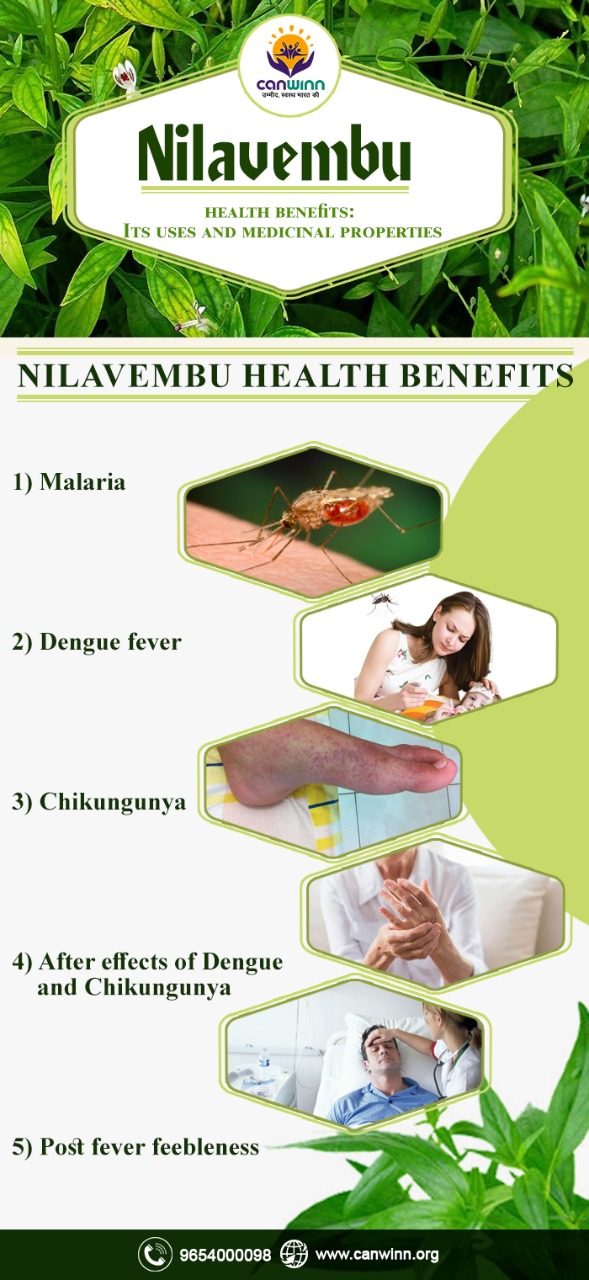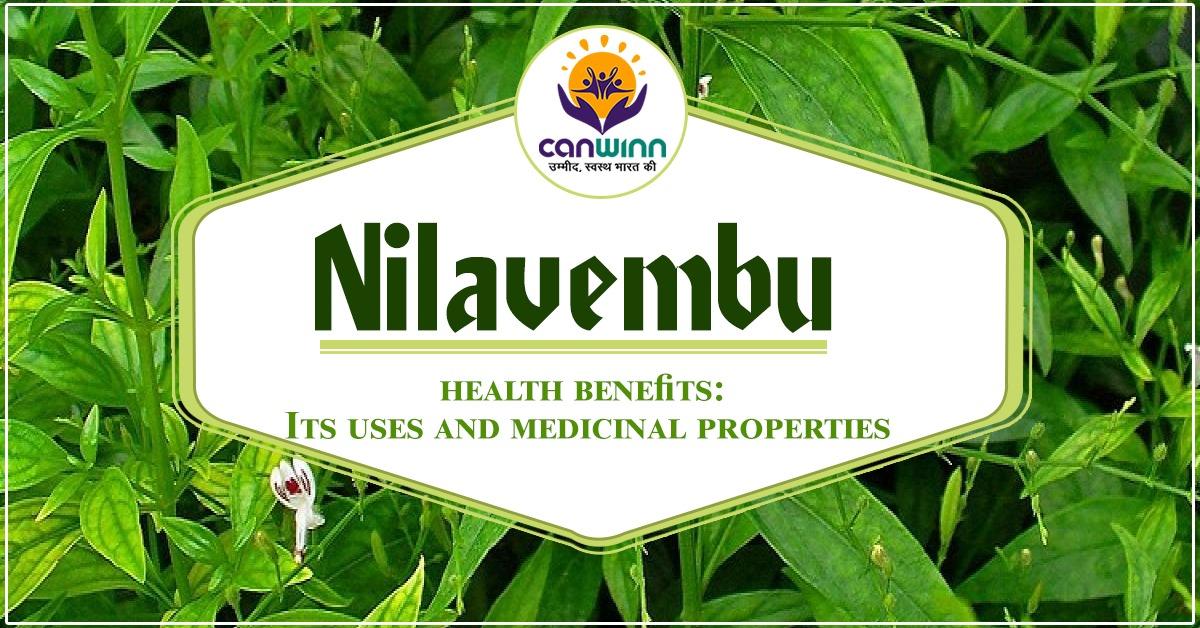The herb Nilavembu Health is also known as Siriyanangai. Nilavembu contains various properties like hepatoprotective, bitter, cholagogue, antipyretic, and digestive, along with anti-inflammatory properties.
This herb is commonly used to treat malaria, chronic fever, chikungunya, intermittent fever, dengue fever, and other fever-related diseases. In the past few years, Nilavembu gained popularity for its beneficial effects in treating Dengue fever and Chikungunya.
Nilavembu Health Benefits
Some of the major health benefits of Nilavembu include:
1) Malaria
The herb contains properties that can help fight against malaria. Nilavembu performs anti-parasitic action to halt the growth of the malaria parasite during the ring stage. The Ayurveda uses this herb with the combinations of Amritarishta, Praval Pishti, Kasis Godanti Bhasma, Tulsi, and Mrityunjay Ras, or Sheetbhanji Ras, or Laxmi Narayan Ras.
2) Dengue fever
Another health benefit of Nilavembu is that it contains antiviral and inhibitory effects on the dengue virus. The herb possesses strong inhibitory effects. Therefore, it helps against dengue virus serotype 1 (DENV-1).
In traditional medicine called Siddha Medicine, nine herbs are mixed together in order to treat dengue. This medicine with nine herbs is known as Nilavembu Kudineer. It is recommended to use this with Amritarishta, or Giloy (Guduchi) Churna, Tulsi leaves, Praval Pishti, and Aqueous Extract of Papaya leaves.
3) Chikungunya Virus Infection
Chikungunya has been a popular disease lately. And as we are talking about Nilavembu here, it holds Andrographolide which offers anti-CHIKV effects. Therefore, Nilavembu hinders the chikungunya virus.
Ayurveda and Siddha medicine practices commonly use this herb to treat Chikungunya. Nilavembu can be used with so many combinations like Tulsi Ghan Vati, Godanti Bhasma, Giloy Ghan Vati, Praval Pishti, Punarnavarishta, etc.
For the instant pain reliever, you can use:
- Maha Yograj Guggul
- Maharasnadi Kwath
4) After effects of Dengue and Chikungunya
Nilavembu is also effective in managing the after-effects of Dengue and Chikungunya. It helps in removing toxins from the body and easing muscle pain and joint pain.
5) Post fever feebleness
Working as a rejuvenator, Nilavembu Health prevents fever weaknesses. Taking Nilavembu, you can strengthen your digestive system and restore your body’s energy. This herb is common for managing physical feebleness that can be seen after chronic disease.
6) Loss of appetite
One of the great Nilavembu health benefits is that it improves appetite. Nilavembu’s cholagogue property stimulates bile secretion. So, it eventually increases appetite.
7) Liver Disorders, Hepatomegaly & Fatty Liver
Nilavembu possesses hepatoprotective effects along with antioxidant and anti-inflammatory properties. Thus, Nilavembu decreases hepatic inflammation and prevents liver damage.
8) Snakebite
Some of the experts have claimed that the combination of Nilavembu and Tamarind (Imli) is effective in treating snakebite. Hence, Nilavembu increases the chances of survival.
What are the Medicinal Properties of Nilavembu Health
Nilavembu has the following medicinal properties:
- Antipyretic
- Anti-microbial
- Anti-protozoan
- Anti-infective
- Insecticidal
- Anti-oxidant
- Anti-inflammatory
- Immunostimulant
- Anti-diabetic
- Bitter
- Blood detoxifier
- Digestive
- Cholagogue
- Hepatic stimulant
- Hepatoprotective
- Nephroprotective
Nilavembu Health Indications
Therapeutic indications of Nilavembu are as follows:
- Intermittent fever
- Malaria
- Chronic fever
- Dengue fever
- Chikungunya
- Post fever debility
- Loss of appetite
- Hepatomegaly
- Fatty liver syndrome
- Jaundice
- Incomplete evacuation
- Mild constipation
- Intestinal parasites
- Snakebites
- Insect Stings
- Sore throat
How to consume Nilavembu
| How many times should I take? | 2 to 3 times a day |
| When should I take? | Before meal |
| Adjuvant | Warm water |



